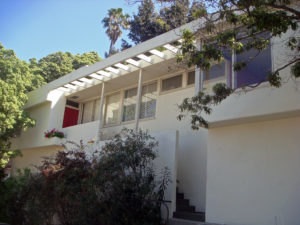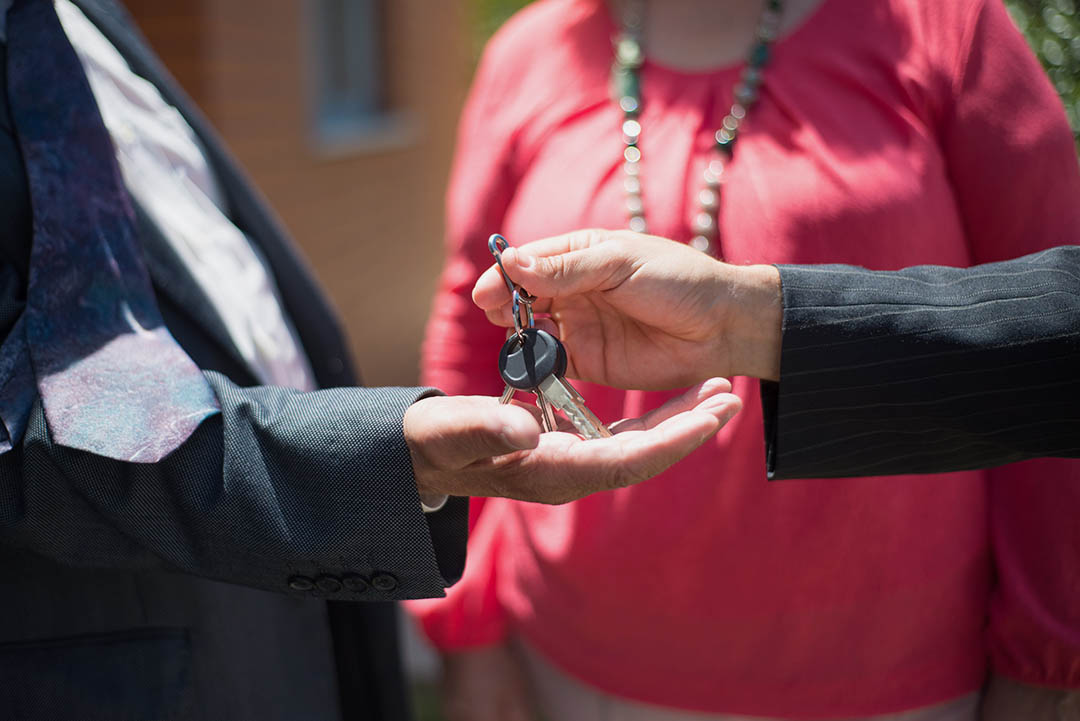
By SAJE Staff
June 9, 2023
Shiloh and her friends found an apartment in North East Los Angeles that required a $12,000 security deposit. The amount should have been a red flag—it was more than three times the amount they were to pay in rent each month. Regardless, they all loved the place, so they all pulled money from their savings accounts and moved in.
After having lived there for four years, Shiloh and her friends thought it would be better to go their separate ways. They knew the owner of the property needed to return their security deposit, and they expected some expenditures to be deducted from the deposit. However, they were shocked when they learned that they were getting nothing back at all.
In accordance with the law, the property owner provided an itemized list of expenditures that had come out of the security deposit. The list included many out-of-the-ordinary costs: the cleaning fee was almost $2,000, even though Shiloh and her roommates had thoroughly cleaned the apartment as part of their move out. The cost to repaint was over $3,500, even though the apartment hadn’t been freshly painted when they moved in. And there was almost $5,000 taken out for a roof repair that occurred during their tenancy, but which they had not caused. There were also late fees for rent payment, even though nothing about late fees had been included in the lease.
Shiloh and her friends recognized that they were being taken advantage of. They decided to take their previous landlord to Small Claims Court to recover the proper remainder of their security deposit, and they won. What happened to Shiloh and her roommates is unjust, but unfortunately it’s a lot more common than people expect. This is why knowing your rights can be helpful in ensuring you get your security deposit back when you move out of your rental unit.
Whether you are new to renting or you have been in the game for a while, security deposits are usually on the list of things you need to account for when moving out and moving in. So let’s get into it.
What is a security deposit?
A security deposit is money that the renter gives to the property owner as proof of their intent to move in and care for the unit. This money can be used to pay for property damages caused by the renter or their guests. It can also be used to cover the cost of missing property, such as an appliance that was there when the renter moved in.
At the end of a tenancy, the property owner is obligated to return the unused portion of the security deposit to the renter. In California, it’s illegal for landlords to require non-refundable security deposits per California Civil Code 1950.5.
How much can property owners charge for security deposits?
Currently, California law caps most security deposits at one month’s rent. Any more than that is illegal, except if the landlord owns two or fewer properties that collectively have no more than four rental units.
What can security deposits be used for?
Under California law, the security deposit may be used to cover specific expenses related to the tenancy. Some of these include:
- Unpaid rent or other charges as specified in the rental agreement, such as late fees or utilities owed by the tenant. This excludes unpaid COVID-19 rental debt.
- Cleaning the rental unit to bring it back to the same level of cleanliness as when the tenant moved in.
- Repairing damages beyond normal wear and tear caused by the tenant or their guests, such as damaged appliances, fixtures, or furnishings. Capital repairs to the unit or the building—broken pipes, leaky roofs, faulty electrical wiring, failing water heaters—should not be taken out of the security deposit.
The owner of the property must send copies of receipts for the charges incurred to repair or clean the rental unit and that were deducted from your security deposit.
What are some red flags when it comes to security deposits?
- The amount of the security deposit is unreasonable, meaning it totals more than one month’s rent
- The security deposit is non-refundable. This is illegal in the state of California.
- The landlord has a history with withholding deposits unfairly. Unfortunately, this can be hard to know. But a quick Google search of the property owner or management company might yield info, and apps like Yelp where people can review businesses and call out their bad practices can also be helpful.
- If the landlord sets special security deposit requirements based on the income, race, or ethnicity of the tenant.
How do you get your security deposit back?
The property owner is legally obligated to return your security deposit within 21 days of vacating the premises. If they do not return it in full, they must provide written notice that includes an itemized list of each deduction made accompanied by receipts and documentation. The property owner is not permitted to deduct for expenses related to normal wear and tear or for capital improvements to the unit or building.
If the property owner fails to return the security deposit or provide an itemized statement within the 21-day period, the tenant may be entitled to the full return of the deposit.
What is normal wear and tear?
Your security deposit should not be used to cover expenses related to normal wear and tear. What is considered “normal wear and tear” can be somewhat subjective, but it refers to the natural deterioration that occurs to a property over time due to ordinary use. It is distinct from damage caused by negligence, carelessness, or abuse. Some common examples of normal wear and tear include:
- Faded paint or wallpaper.
- Minor scuffs or marks on the walls.
- Worn-out carpet or flooring from regular use.
- Gradual deterioration of appliances or fixtures due to age and use.
- Faded or slightly torn window coverings.
- Small nail holes or picture hooks in walls.
- Stains on the carpet or flooring that are not excessive.
Are you entitled to the interest accrued on your security deposit?
In the City of Los Angeles, a security deposit for a rent controlled unit must be returned with interest if the property owner has held it for more than one year. Interest can range from 0.29% to 5%. That amount is determined by using the rate established by the Rent Adjustment Commission or by paying the actual amount earned on the security deposit when it was banked. The landlord must provide the tenant with a copy of a bank statement indicating the interest earned on their deposit.
What if your property owner refuses to return your security deposit?
- First, review the section of your lease that pertains to the security deposit. Your lease might have stipulation about whether you will receive it before or after you vacate the unit.
- Second, contact the property owner to formally request the return of your security deposit. Make sure to do this in writing, preferably via email or certified mail. Clearly state the reasons you believe you are entitled to the deposit and include relevant documentation, such as receipts or photos of the property before you moved in and after you moved out.
- Document everything. Keep a record of all your communications with the property owner, including dates, times, and the content of each conversation or email. Yes, even document your phone calls! This documentation can be valuable if legal action becomes necessary.
- If the owner is responding to your inquiries, try mediation. Many times, government agencies offer mediation services for free or at discounted prices. In Los Angeles County, the Department of Business and Consumer Affairs has mediation landlord-tenant services. These services can help facilitate a resolution between you and the property owner without the need for legal action.
- If the property owner is not responding to your inquiries, send a demand letter. This letter should clearly state your grievance, reference relevant laws, and specify a deadline for the return of your security deposit.
- If there is no response to your demand letter, seek legal advice. Consult with a lawyer who specializes in tenant law who can guide you on the best course of action and help you determine if pursuing legal action is needed. If you can’t afford a lawyer, you can try attending SAJE’s Tenant Action Clinic, which is staffed with volunteer attorneys.
- If you cannot get legal advice or feel it is not needed, then you can take the property owner to court. If the amount owed is more than $10,000, you can file a civil suit. If the amount is below $10,000, you can sue the property owner in Small Claims Court.

